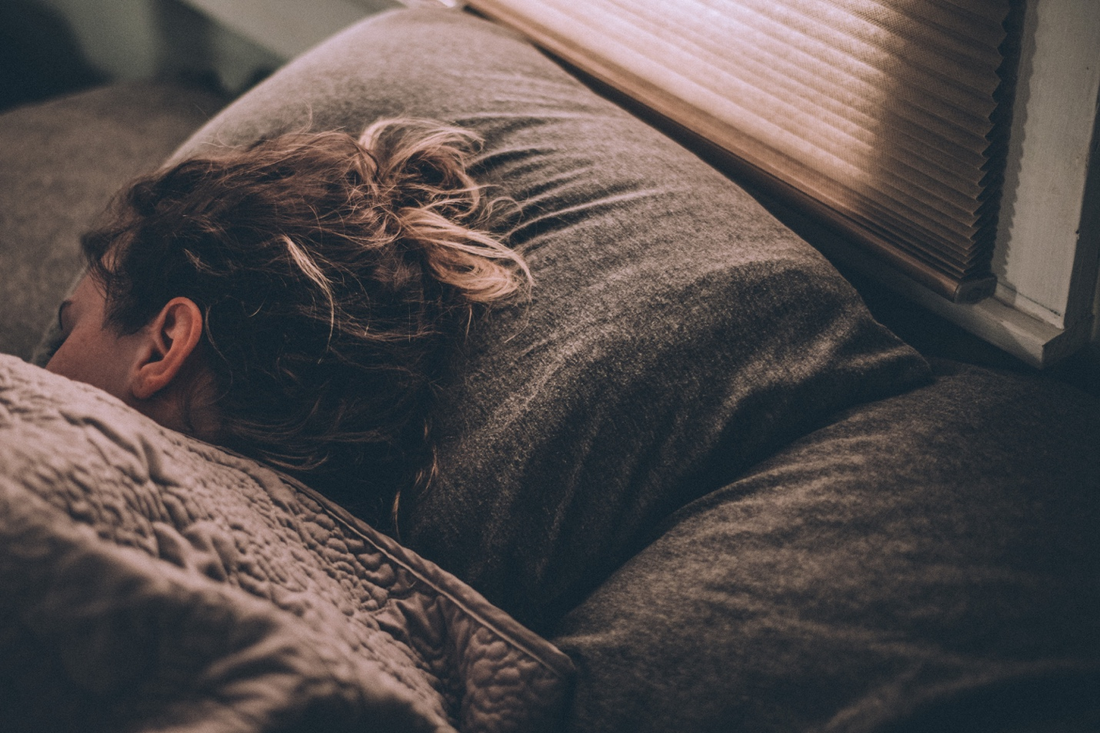|
One of the leading reasons for anxiety is sleep deprivation.  𝒷𝓎 Krista Harper, Guest Submission Anxiety is the leading mental illness in America, affecting over 40-million people, or nearly 20% of the population. Despite being treatable, only about one-third of people ever seek treatment. Anxiety is actually quite normal and healthy. Though, at times a person’s level of anxiety can be disruptive and lead to mental health issues resulting in frequent nervousness, fear, worry, and apprehension. One of the leading reasons for anxiety is sleep deprivation. Here are ways your sleep impacts your anxiety. Disrupts hormones During sleep your body goes through multiple cycles of REM and non-REM sleep. Both of these play a critical role in managing repair and function of your body, weighing heavily on the production of hormones to treat injuries from paper cuts to muscle tissue damage. When you don’t get seven or more hours of quality sleep your body can overproduce hormones such as cortisol which can induce a safety mechanism forcing your body to store fat while utilizing the proteins in your muscle to burn energy. In addition to affecting your appetite, these hormonal changes can impact weight gain which can often lead to anxiety and a lack of self-esteem. Affects your mood and emotions With most people having experienced sleep deprivation at some point in their lives, you likely have felt the emotional or moody response to lack of sleep. Studies have shown that partial sleep deprivation for as little as a couple days to a week can make people feel stressed, angry, sad, and emotionally exhausted. In turn, these feelings can lead to increased bouts of sleeplessness known as insomnia which is caused by mental stress, often contributed to by your daily mood and emotions. Affects focus You’ve likely noticed that after a poor night of sleep you can’t seem to focus on anything for very long. One study found that sleep deprivation can significantly impair your “selective attention” which is your ability to singularly focus on something while other things are happening in the background. This lack of focus is caused by lower alertness and concentration which makes you more easily confused. In effect you can’t perform tasks, even simple ones, that require a degree of reasoning or thought. Limits Memory When you sleep your mind uses that time to process and organize thoughts, memories, emotions, and all sorts of things. So, when you are sleep deprived your mind has not had adequate time to process this information. When it comes to memory, your mind plays a critical role during sleep where it sorts through your daily memories keeping the ones that you will need to make decisions in the future and hiding unneeded memories thus opening space for your memories the following day. Without this process you will naturally have a difficult time recollecting important details. Causes Lack of Motivation Lack of motivation is a culmination of sleep deprived symptoms. For example, a lack of sleep results in memory lapses, ability to focus, mood and emotions, as well as your body’s ability to repair itself. As a consequence, your body provides a counteraction to shut down so that you have the ability to reestablish sleep. Mentally this can result in a lack of motivation and even tiredness than won’t allow you to sleep. Anxiety can be related to a person’s ability to sleep. Sleep deprivation can lead to a disruption of hormones, negatively impact mood and emotions, limit memory and focus, and lead to a lack of motivation. With only about a third of adults seeking treatment for anxiety, it’s important to be aware of the causes and seek treatment if anxiety overwhelms your life. Krista is a freelance writer from Southern California that regularly covers health and lifestyle topics. She is always looking for ways to better herself and has a passion for helping others create balance in their lives.
|
|
OverviewNWO’s source for all things relationships, mental health, wellness, lifestyle, and pandemic support. Kelly Magazine is a mental health outreach initiative created by Kelly Mental Health and supported by Kelly Mental Health Foundation, a non-profit organization dedicated to improving the community in the area of mental health.
|
Magazine |
Follow Us |
In support of @kellymentalhealthfndn |
© COPYRIGHT. ALL RIGHTS RESERVED. WEB DESIGN BY KMH




